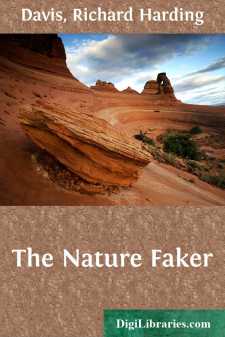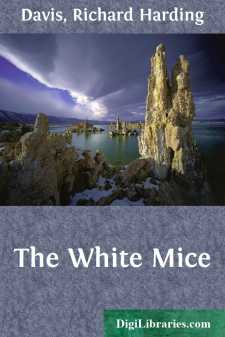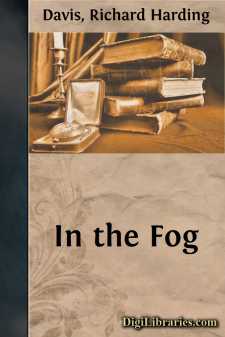Categories
- Antiques & Collectibles 13
- Architecture 36
- Art 48
- Bibles 22
- Biography & Autobiography 813
- Body, Mind & Spirit 142
- Business & Economics 28
- Children's Books 17
- Children's Fiction 14
- Computers 4
- Cooking 94
- Crafts & Hobbies 4
- Drama 346
- Education 46
- Family & Relationships 57
- Fiction 11829
- Games 19
- Gardening 17
- Health & Fitness 34
- History 1377
- House & Home 1
- Humor 147
- Juvenile Fiction 1873
- Juvenile Nonfiction 202
- Language Arts & Disciplines 88
- Law 16
- Literary Collections 686
- Literary Criticism 179
- Mathematics 13
- Medical 41
- Music 40
- Nature 179
- Non-Classifiable 1768
- Performing Arts 7
- Periodicals 1453
- Philosophy 64
- Photography 2
- Poetry 896
- Political Science 203
- Psychology 42
- Reference 154
- Religion 513
- Science 126
- Self-Help 84
- Social Science 81
- Sports & Recreation 34
- Study Aids 3
- Technology & Engineering 59
- Transportation 23
- Travel 463
- True Crime 29
The Nature Faker
Description:
Excerpt
Richard Herrick was a young man with a gentle disposition, much money, and no sense of humor. His object in life was to marry Miss Catherweight. For three years she had tried to persuade him this could not be, and finally, in order to convince him, married some one else. When the woman he loves marries another man, the rejected one is popularly supposed to take to drink or to foreign travel. Statistics show that, instead, he instantly falls in love with the best friend of the girl who refused him. But, as Herrick truly loved Miss Catherweight, he could not worship any other woman, and so he became a lover of nature. Nature, he assured his men friends, does not disappoint you. The more thought, care, affection you give to nature, the more she gives you in return, and while, so he admitted, in wooing nature there are no great moments, there are no heart-aches. Jackson, one of the men friends, and of a frivolous disposition, said that he also could admire a landscape, but he would rather look at the beautiful eyes of a girl he knew than at the Lakes of Killarney, with a full moon, a setting sun, and the aurora borealis for a background. Herrick suggested that, while the beautiful eyes might seek those of another man, the Lakes of Killarney would always remain where you could find them. Herrick pursued his new love in Connecticut on an abandoned farm which he converted into a "model" one. On it he established model dairies and model incubators. He laid out old-fashioned gardens, sunken gardens, Italian gardens, landscape gardens, and a game preserve.
The game preserve was his own especial care and pleasure. It consisted of two hundred acres of dense forest and hills and ridges of rock. It was filled with mysterious caves, deep chasms, tiny gurgling streams, nestling springs, and wild laurel. It was barricaded with fallen tree-trunks and moss-covered rocks that had never felt the foot of man since that foot had worn a moccasin. Around the preserve was a high fence stout enough to keep poachers on the outside and to persuade the wild animals that inhabited it to linger on the inside. These wild animals were squirrels, rabbits, and raccoons. Every day, in sunshine or in rain, entering through a private gate, Herrick would explore this holy of holies. For such vermin as would destroy the gentler animals he carried a gun. But it was turned only on those that preyed upon his favorites. For hours he would climb through this wilderness, or, seated on a rock, watch a bluebird building her nest or a squirrel laying in rations against the coming of the snow. In time he grew to think he knew and understood the inhabitants of this wild place of which he was the overlord. He looked upon them not as his tenants but as his guests. And when they fled from him in terror to caves and hollow tree-trunks, he wished he might call them back and explain he was their friend, that it was due to him they lived in peace. He was glad they were happy. He was glad it was through him that, undisturbed, they could live the simple life.
His fall came through ambition. Herrick himself attributed it to his too great devotion to nature and nature's children. Jackson, he of the frivolous mind, attributed it to the fact that any man is sure to come to grief who turns from the worship of God's noblest handiwork, by which Jackson meant woman, to worship chipmunks and Plymouth Rock hens. One night Jackson lured Herrick into New York to a dinner and a music hall. He invited also one Kelly, a mutual friend of a cynical and combative disposition. Jackson liked to hear him and Herrick abuse each other, and always introduced subjects he knew would cause each to lose his temper.
But, on this night, Herrick needed no goading. He was in an ungrateful mood. Accustomed to food fresh from the soil and the farmyard, he sneered at hothouse asparagus, hothouse grapes, and cold-storage quail. At the music hall he was even more difficult. In front of him sat a stout lady who when she shook with laughter shed patchouli and a man who smoked American cigarettes. At these and the steam heat, the nostrils of Herrick, trained to the odor of balsam and the smoke of open wood fires, took offense. He refused to be amused. The monologue artist, in whom Jackson found delight, caused Herrick only to groan; the knockabout comedians he hoped would break their collar-bones; the lady who danced Salome, and who fascinated Kelly, Herrick prayed would catch pneumonia and die of it. And when the drop rose upon the Countess Zichy's bears, his dissatisfaction reached a climax....












